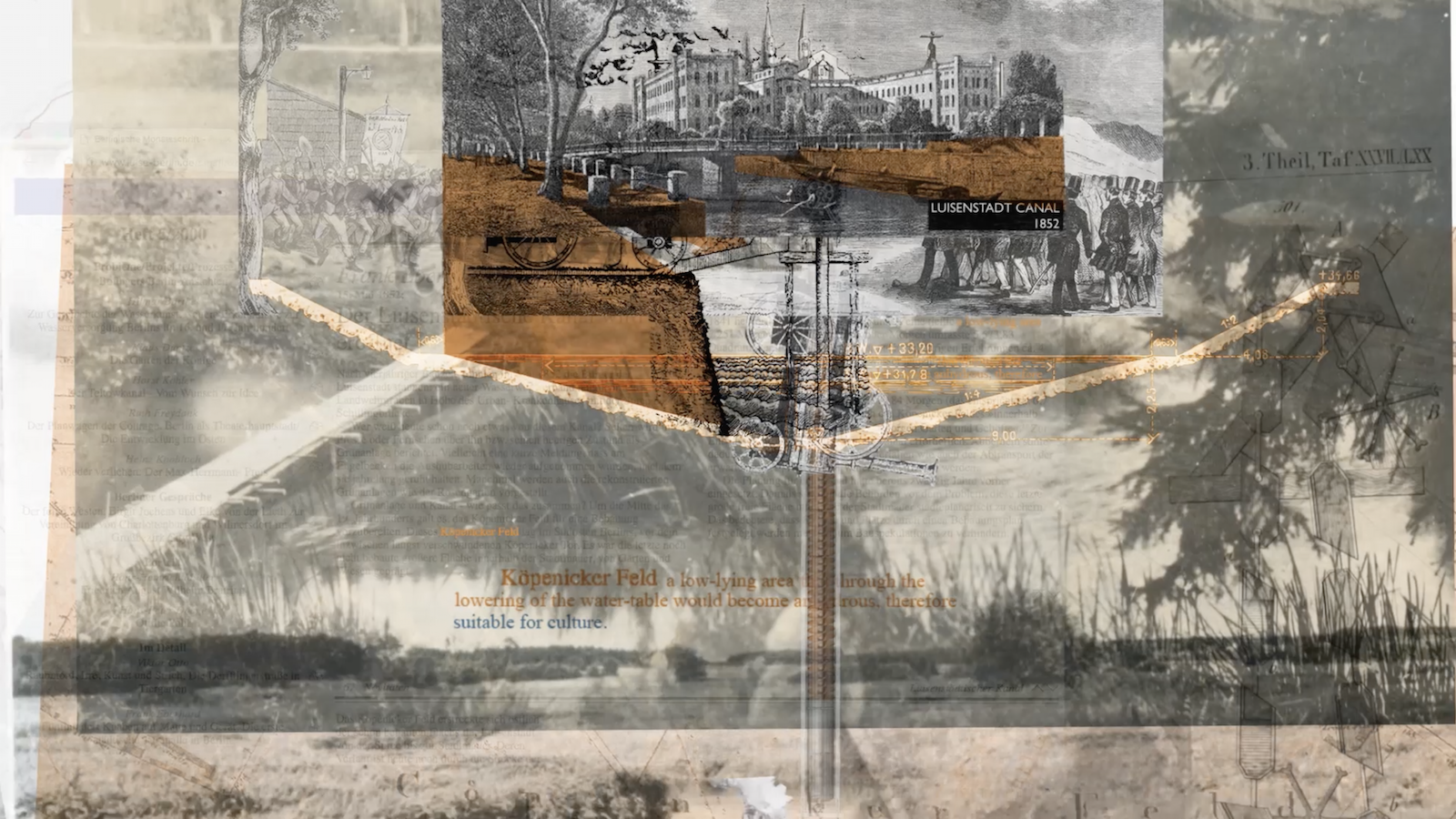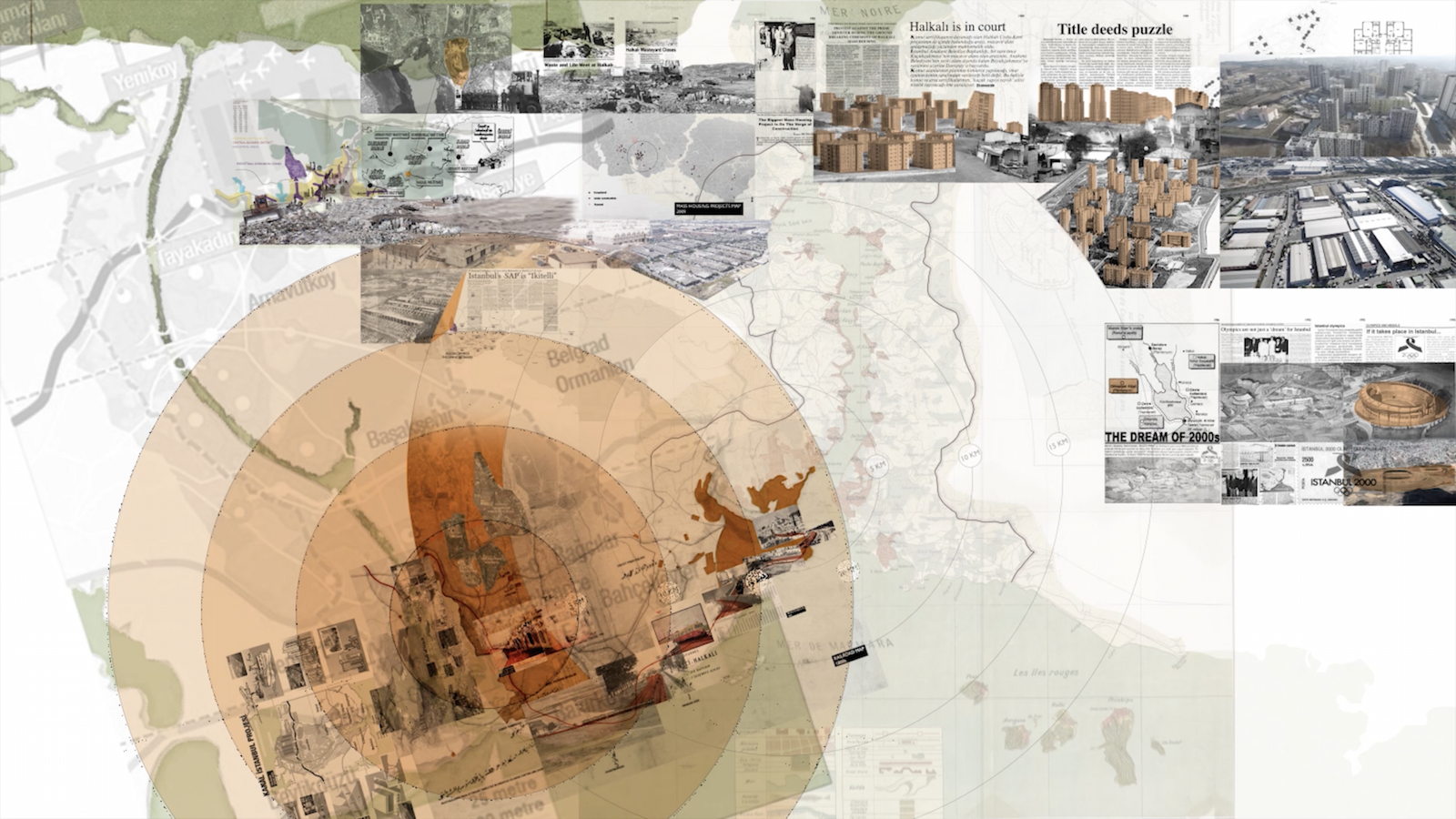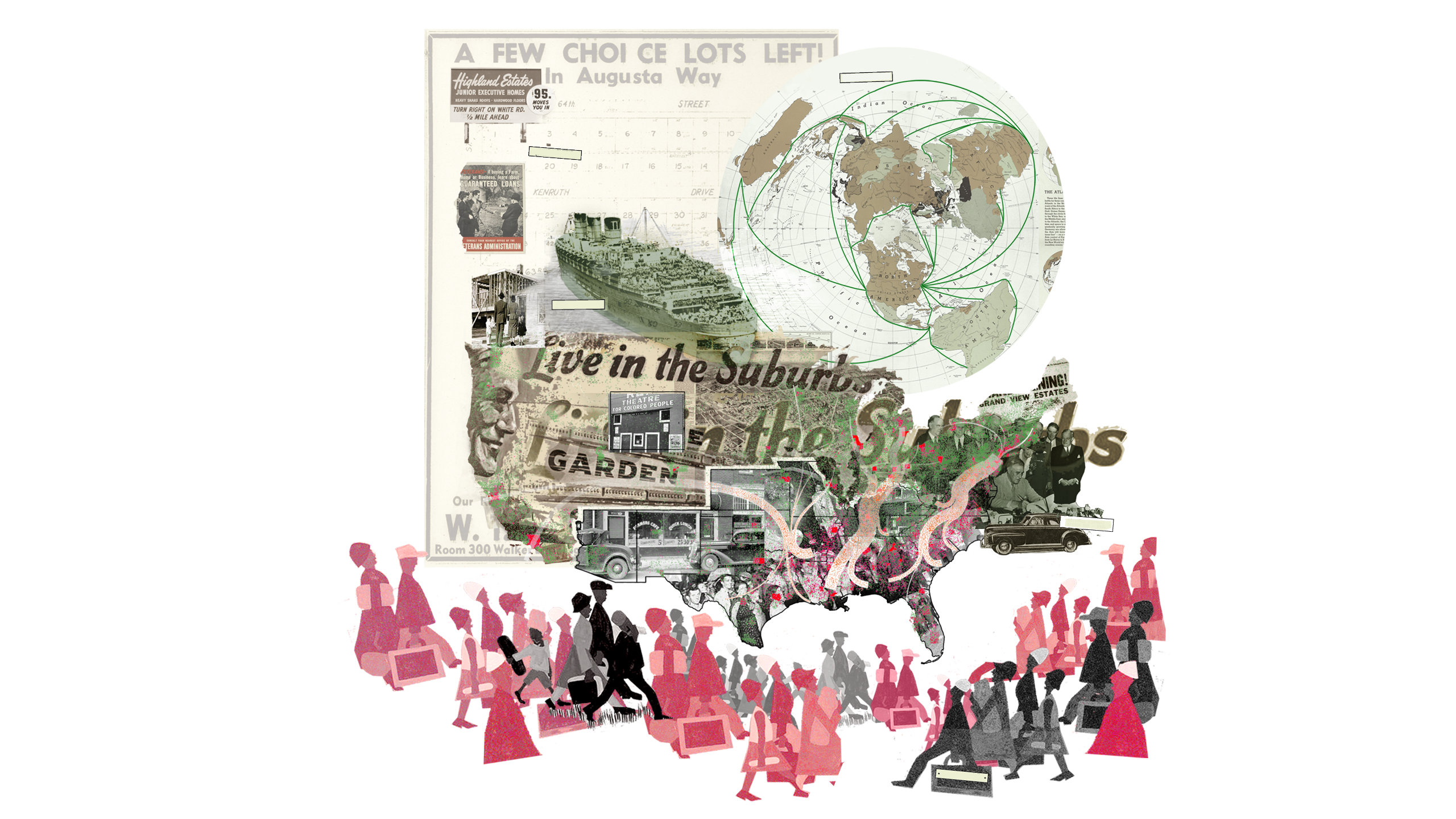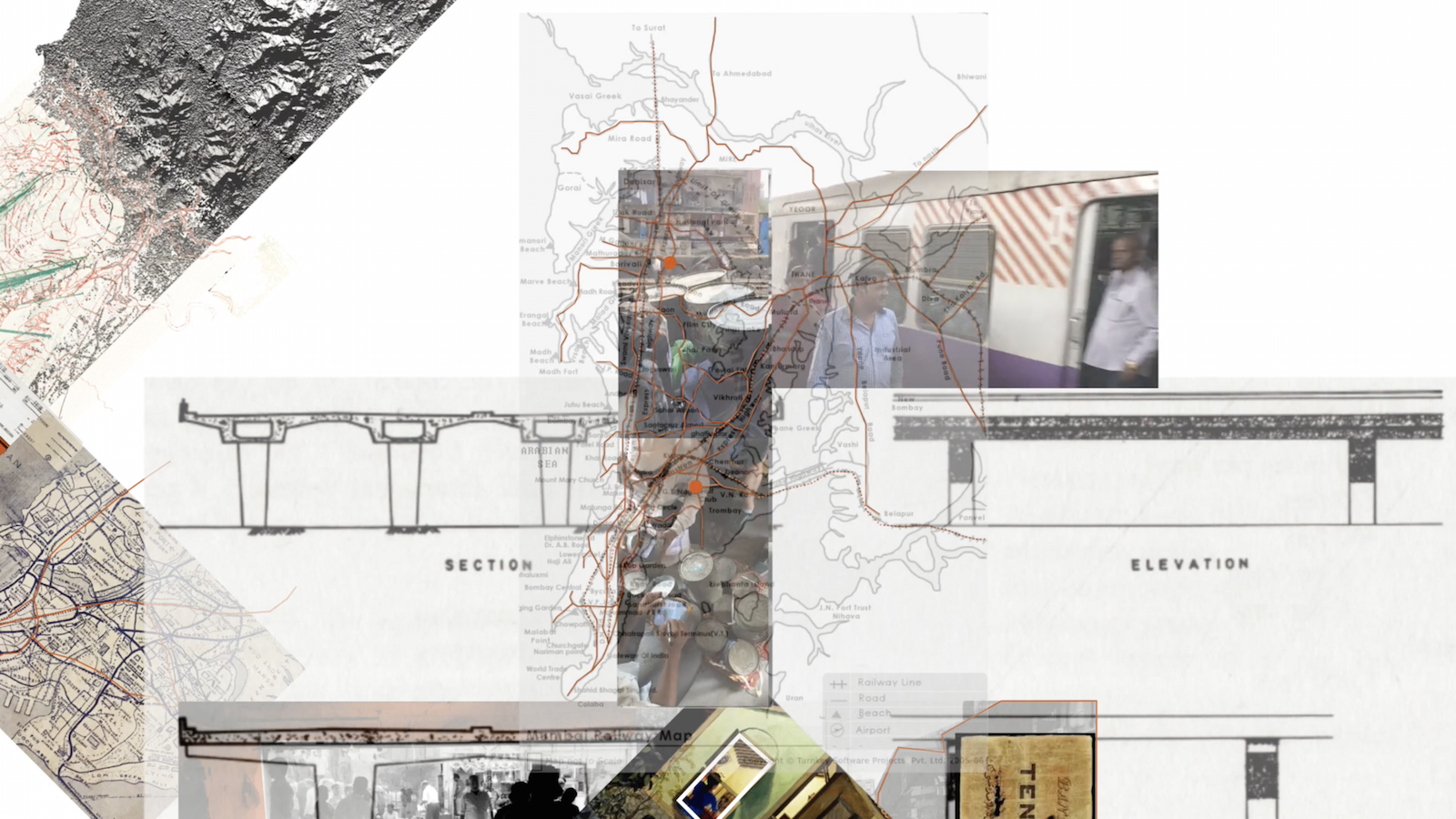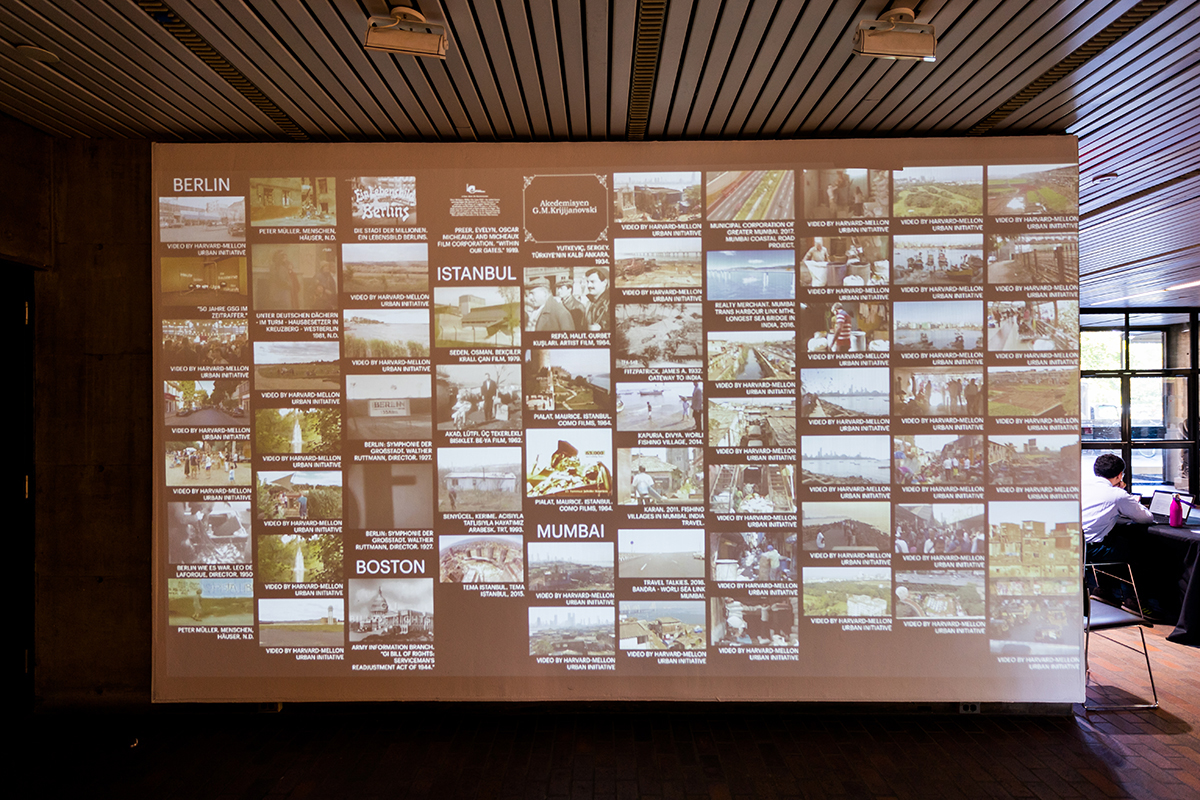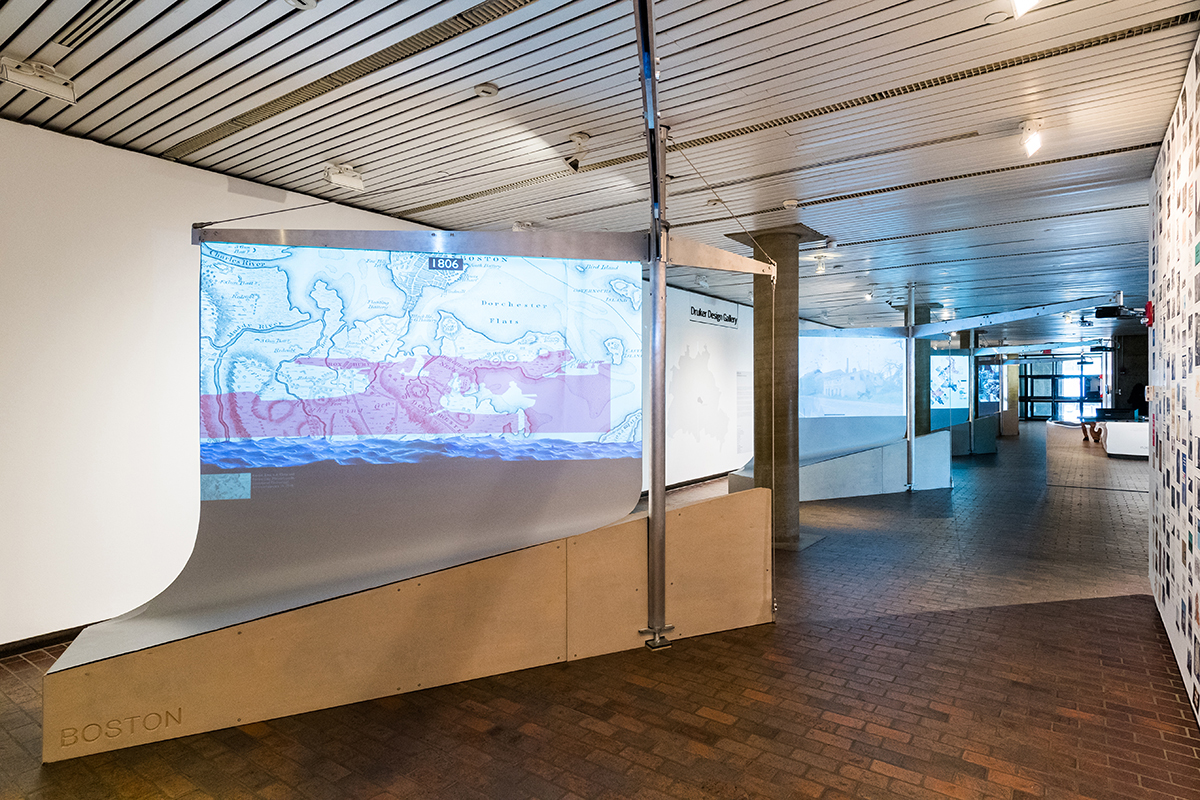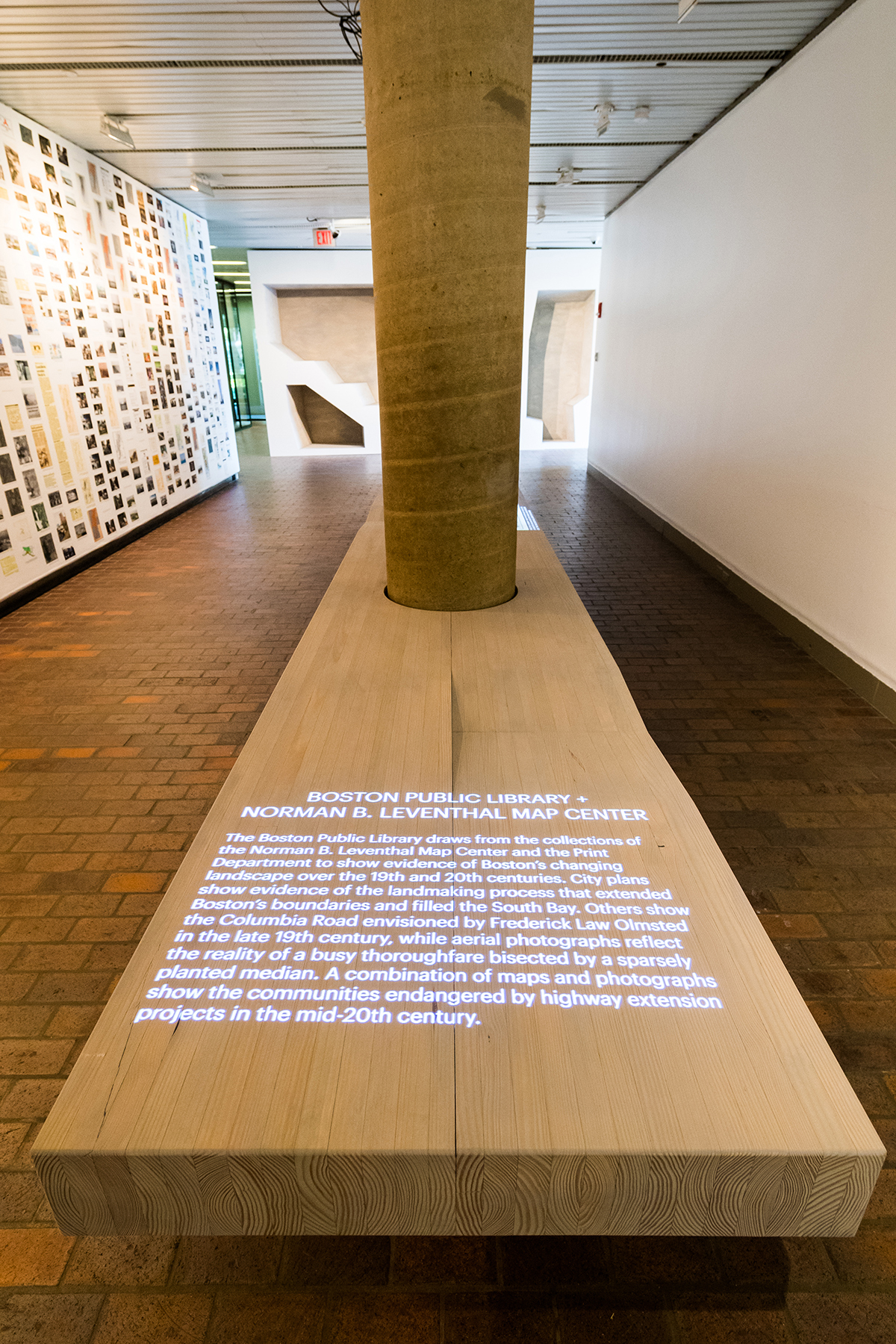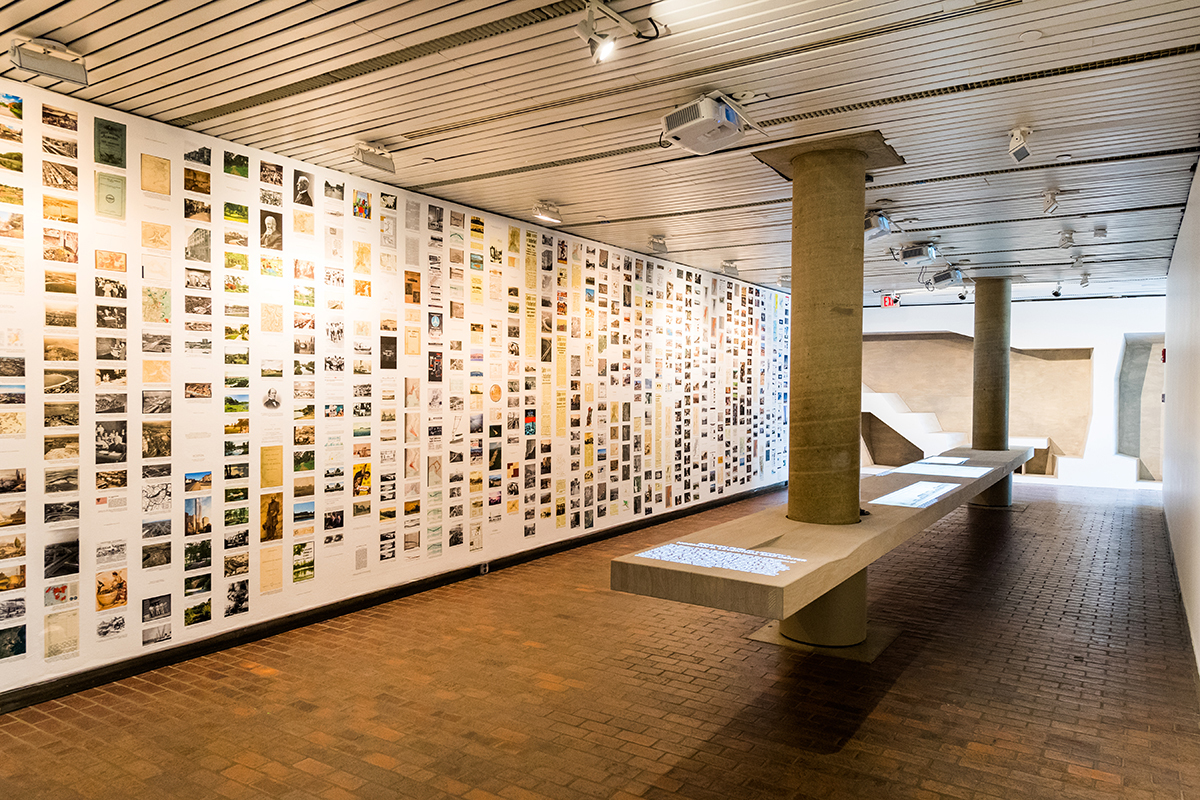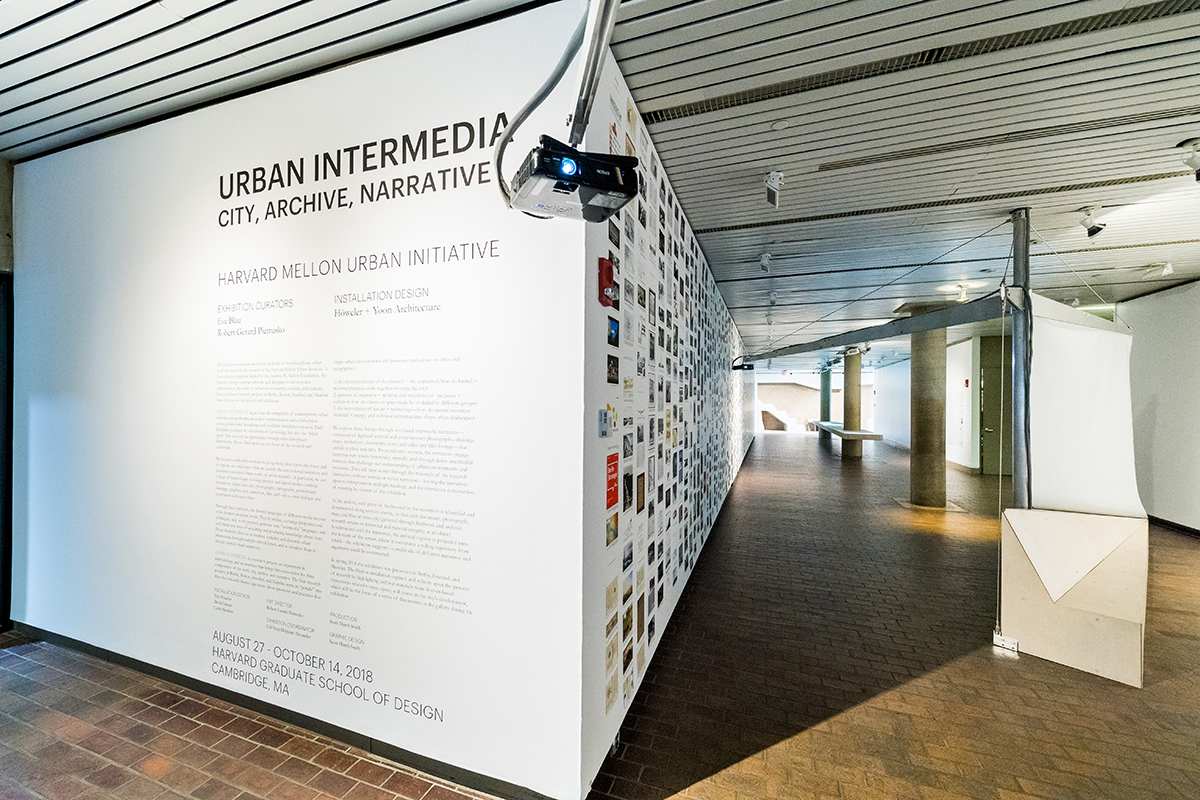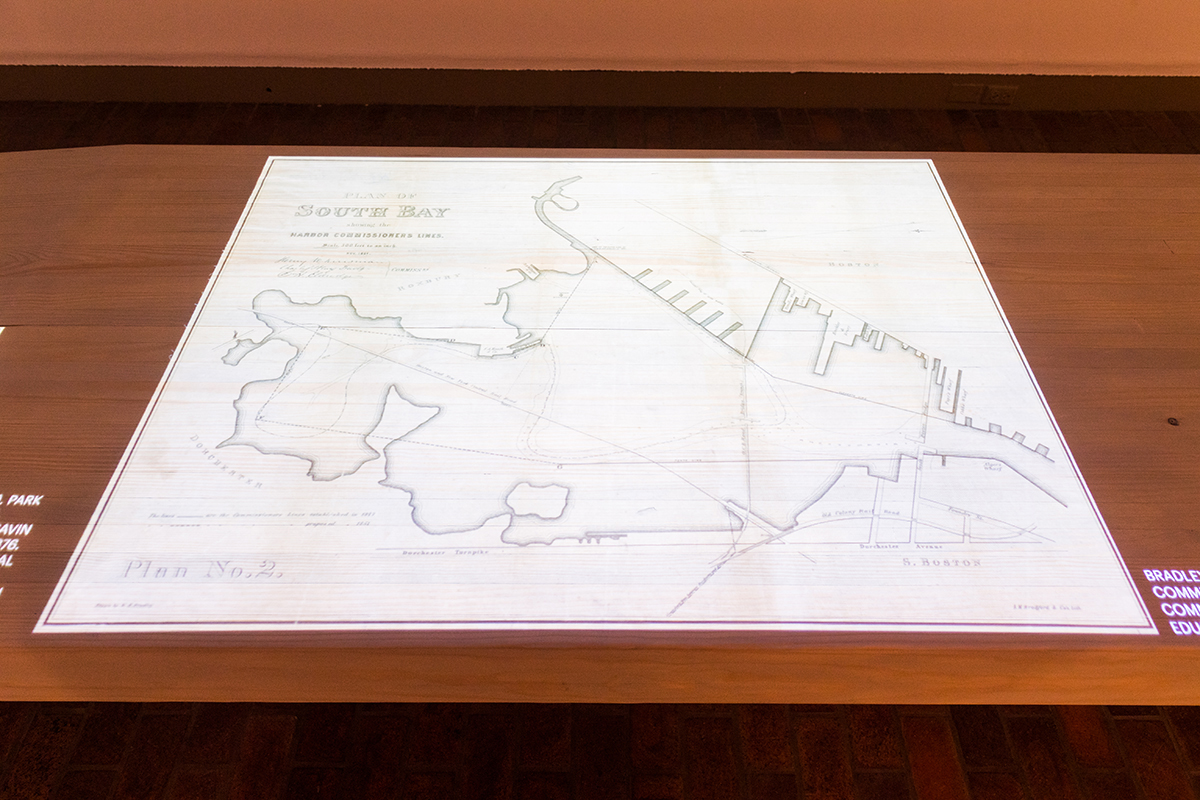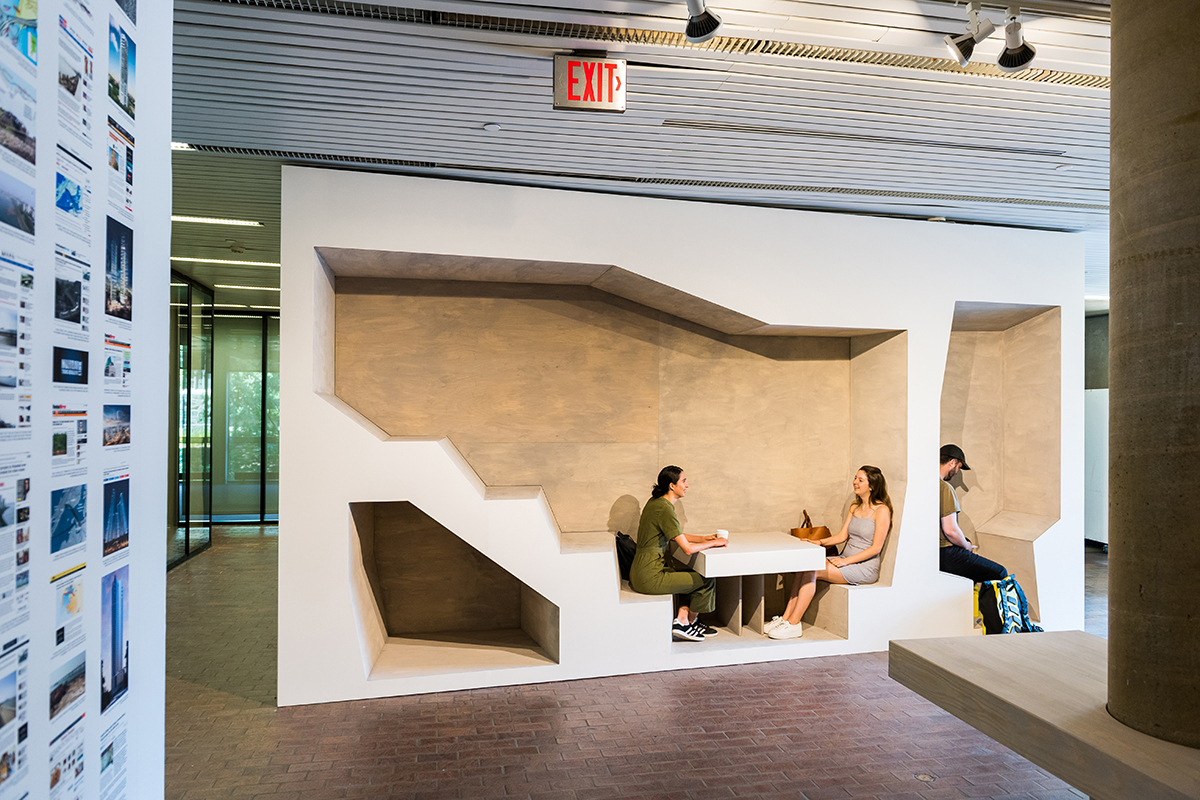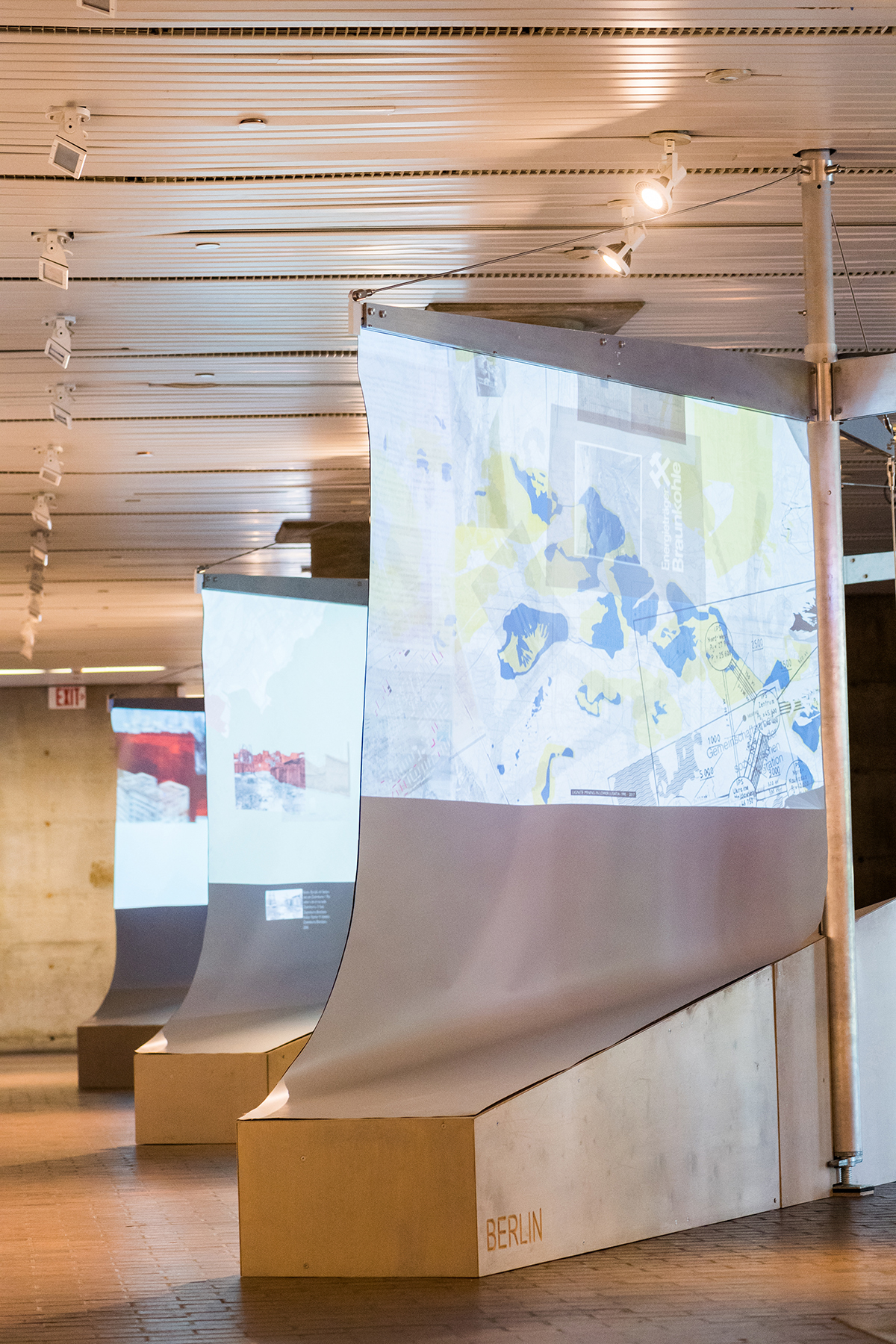Urban Intermedia: City, Archive, Narrative
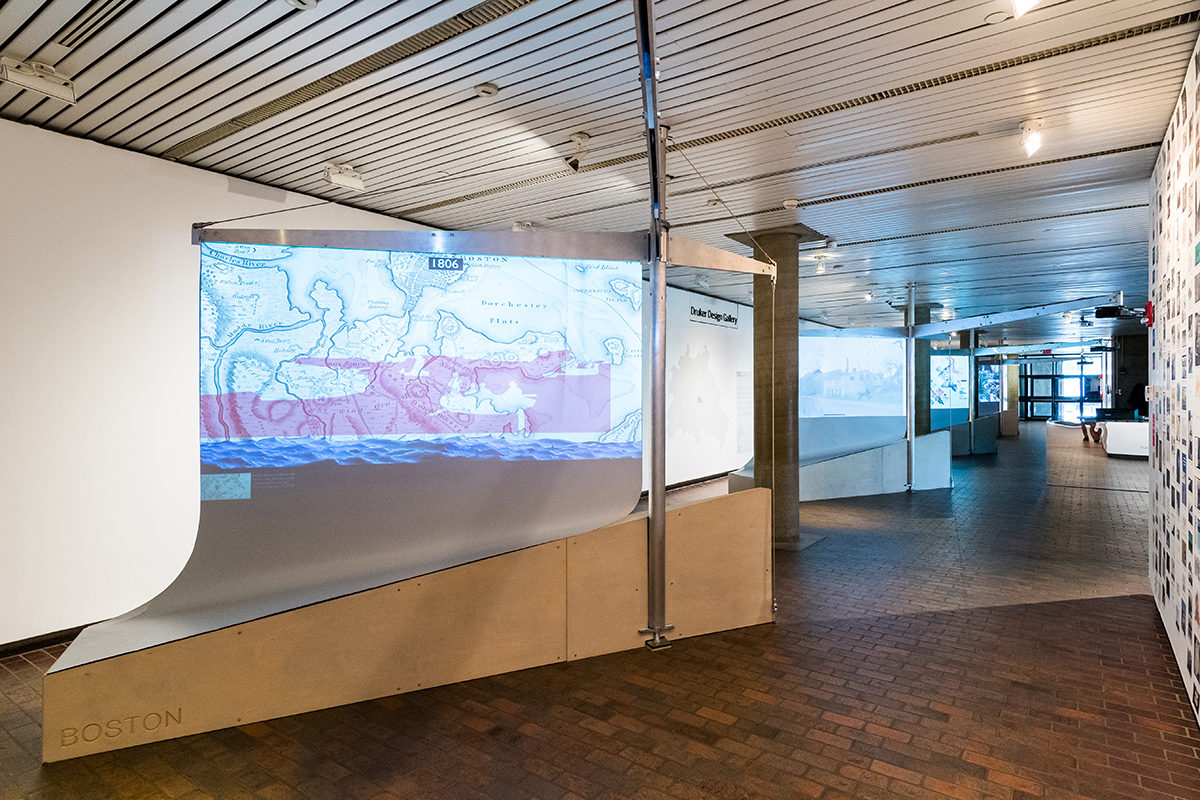
“Urban Intermedia: City, Archive, Narrative,” the culmination of a four-year investigation funded by the Andrew W. Mellon Foundation, argues that the complexity of contemporary urban societies and environments makes communication and collaboration across professional boundaries and academic disciplines essential. Four research projects, focused respectively on Berlin, Boston, Istanbul, and Mumbai, use a range of technologies to bring physical and digital media—archival documents, digital data sets, photography, cartography, architectural drawings, graphics, text, animation, film, and video—into dialogue and registration with each other. The media hybridize, exchange properties and techniques, and generate new “intermedia” languages—and, with them, new ways of acquiring and producing knowledge about cities. Projected onto screens, the visual narratives they construct tell their stories though the materials of the research themselves without written or verbal narration, leaving them open to multiple readings and the interactive construction of meaning with viewers of the exhibition.
In spring 2018 the exhibition was presented in Berlin, Istanbul, and Mumbai. The Boston installation of “Urban Intermedia” expands and reflects upon the process of research by highlighting archival materials from Boston-based collections related to race, space, and power in the city’s development. A 33-foot-long meeting table will serve as an active site of research and exchange over the course of the exhibition—a place for hosting small lectures, class sessions, and discussions around the display of archival media.
“Urban Intermedia” is curated by Eve Blau and Robert Gerard Pietrusko with installation design by Höweler + Yoon Architecture.
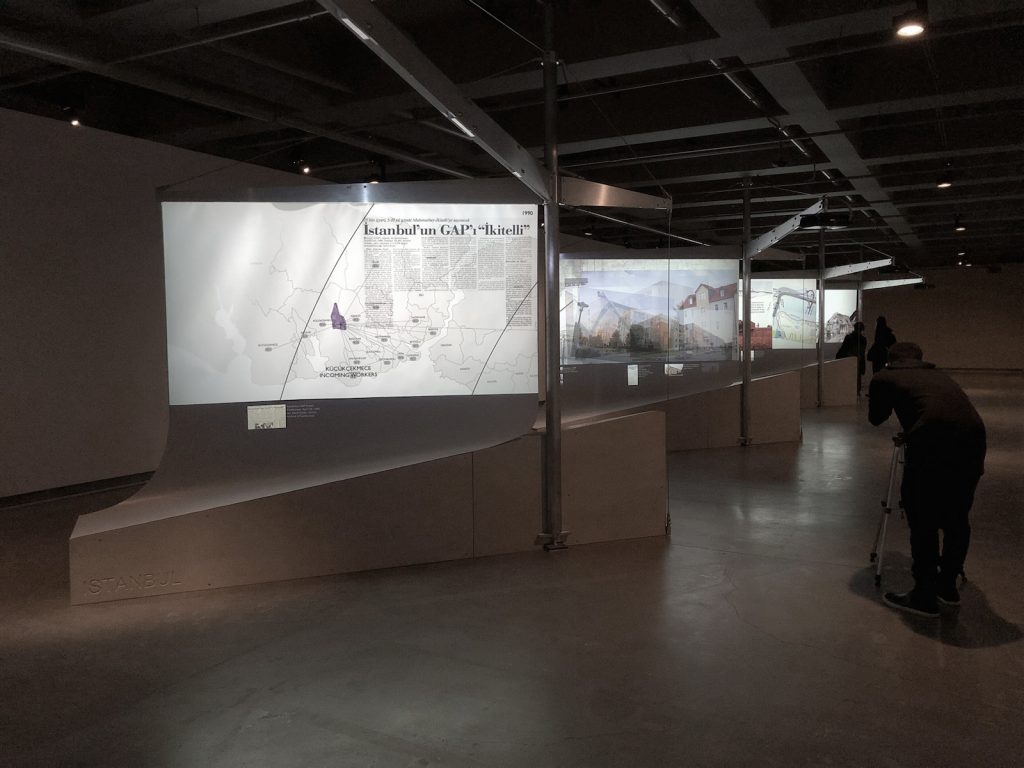
Concept
The exhibition presents innovative methods of interdisciplinary urban study developed in the context of the Harvard Mellon Urban Initiative. A four-year investigation funded by the Andrew W. Mellon Foundation, the Initiative brings together scholars and designers to develop new approaches to the study of urban environments, societies, and cultures. Four city-based research projects in Berlin, Boston, Istanbul, and Mumbai form the core of the project and exhibition.
“Urban Intermedia” argues that the complexity of contemporary urban societies and environments makes communication and collaboration across professional boundaries and academic disciplines essential. Each discipline produces its own forms of knowledge, but also has “blind spots” that can only be approached through other disciplinary frameworks. Those blind spots are the focus of the research and exhibition.
We use new media-rich methods to bring those blind spots into focus and to explore sites and topics that are outside the conventional narratives and dominant conceptual frameworks of urban research. In particular, we use a range of technologies to bring physical and digital media—archival documents, digital data sets, photography, cartography, architectural drawings, graphics, text, animation, and film and video—into dialogue and registration with each other.
Through these methods, the distinct languages of different media interact at the deepest structural levels. They hybridize, exchange properties and techniques, and, in the process, generate new “intermedia” languages, and with them new ways of acquiring and producing knowledge about cities. These methods allow us to examine complex and dynamic urban phenomena through multiple critical lenses, and to visualize them in densely layered visual narratives.
Exhibition
“Urban Intermedia” is a research project, an experiment in methodology, and an interface that brings into association the three components of the work: city, archive, and narrative. The four research projects in Berlin, Boston, Istanbul, and Mumbai serve as “portals” into three key themes that structure the research: the interdependence of the planned + the unplanned and of formal and informal practices; the urban imprint of migration + mobility and the modalities of inclusion and exclusion; and the interrelation of nature + technology and of urban ecology and infrastructure. We explore these themes through site-based intermedia narratives—composed of digitized archival and contemporary photographs, drawings, maps, animations, documents, texts, and video and film footage—that unfold in place and time.
Each narrative explores contemporary issues historically, spatially, and through dense intermedial matrices that challenge our understanding of urban environments and processes. The stories they tell are radically open to interpretation, elaboration, and the interactive construction of meaning by viewers of the exhibition.
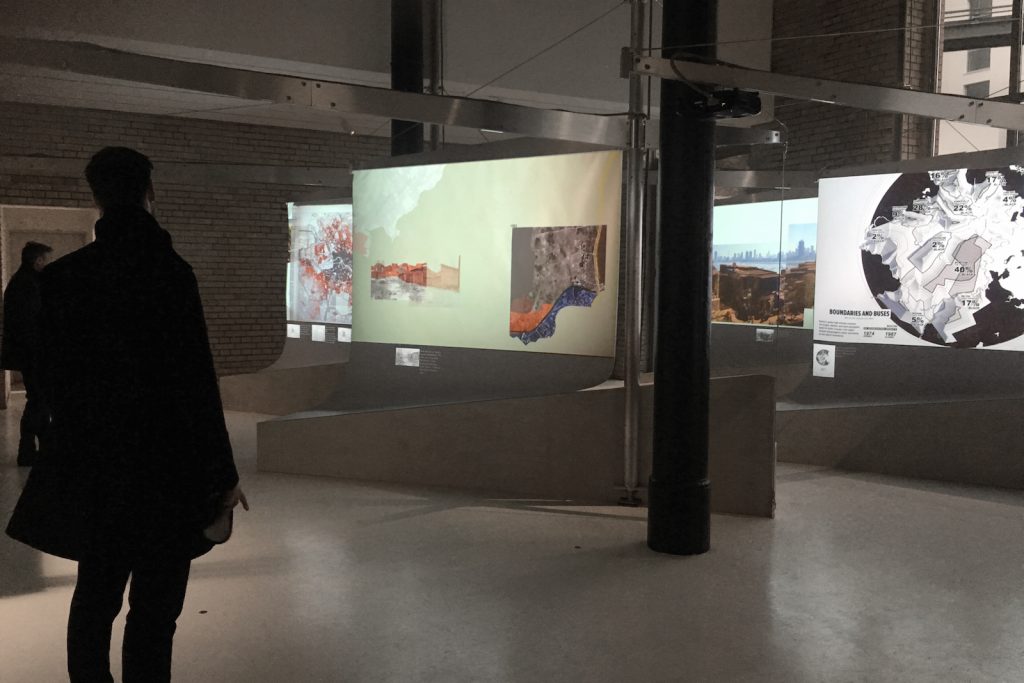
In the archive, each piece of media used in the narratives is identified and documented along with its source, so that each document, photograph, map, and film or video clip gathered through fieldwork and archival research retains its historical and material integrity as an object. Synchronized with the narratives, the archival register is projected onto the screen, where it constitutes a rolling repository from which—the exhibition suggests—a multitude of different narratives and arguments could be constructed.
Boston Portal
The theme for the Boston portal is “Race and Space”: cautionary tales about infrastructural racism. It spans three eras of city-making and focuses on three physical infrastructures that define the spatial and political dimensions of segregated inner-city neighborhoods where many black Americans and immigrants live, experiencing dramatic disparities in wealth, educational attainment, and life expectancy as well as below-average access to jobs, open space, and public transportation. While disparities caused by systemic racism are unambiguous in Boston, open discussion of the subject has only recently become a part of mainstream public discourse. The research presented here is intended to contribute to that discourse.
Race and Space in Boston Archives
Race and Space in Boston Archives assembles archival materials from various Boston Collections related to the theme of the Boston Portal research and exhibition narratives. The participating Curators were invited to interpret the topic of Race and Space freely and to select a range of materials from their collections: maps, photographs, graphics, and texts that address the theme historically and spatially. Contributors shared 15-20 digital surrogates of archival content or born-digital material from their repositories to be displayed on the tabletop, changing periodically from one collection to the next in looping rotation. Taken together, selections from each collection contribute to a broad understanding of Boston at the intersection of Race and Space.
In the exhibition, the tabletop onto which the images are projected is both a surface for curation and display and a platform for research and exploration. It supports analytic, cognitive, and perceptual deviations from familiar design processes by encouraging students, faculty, and guests to ‘plug in’ and view material in ways that technology is already designed to support. This includes, but is not limited to: impromptu group discussions, studio pin-ups, and project presentations.
Featured content comes from the collections of the Harvard Frances Loeb Library Special Collections as well as Map the Gap student research; Northeastern University Library Archives and Special Collections; Norman B. Leventhal Map and Education Center and Boston Public Library Archives; Boston Globe: Boston. Racism. Image. Reality.; BPDA Department of Research; and Urban GSD.
Project
Harvard Mellon Urban Initiative is a multi-year, cross-Harvard research and teaching project supported by funding from the Andrew W. Mellon Foundation. It brings together scholars and designers to develop new visual and digital methods and cross-disciplinary approaches to the study of urban environments, societies, and cultures. Four city-based research projects in Berlin, Boston, Istanbul, and Mumbai, along with related courses and programming, form the core of the project. “Urban Intermedia: City, Archive, Narrative,” the capstone project of the Initiative, presents the findings of the research and the media-rich methods of exploring the disciplinary “blind spots” of urban research developed in the project.
More information regarding the Harvard Mellon Urban Initiative is available at the program’s website.
